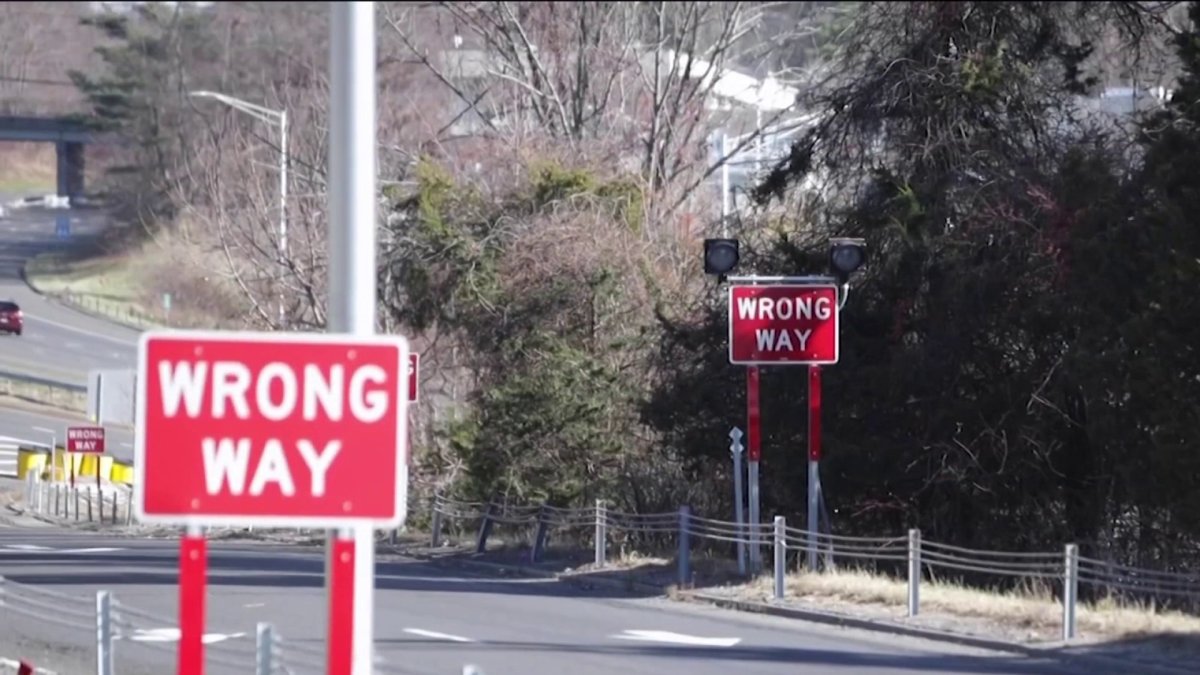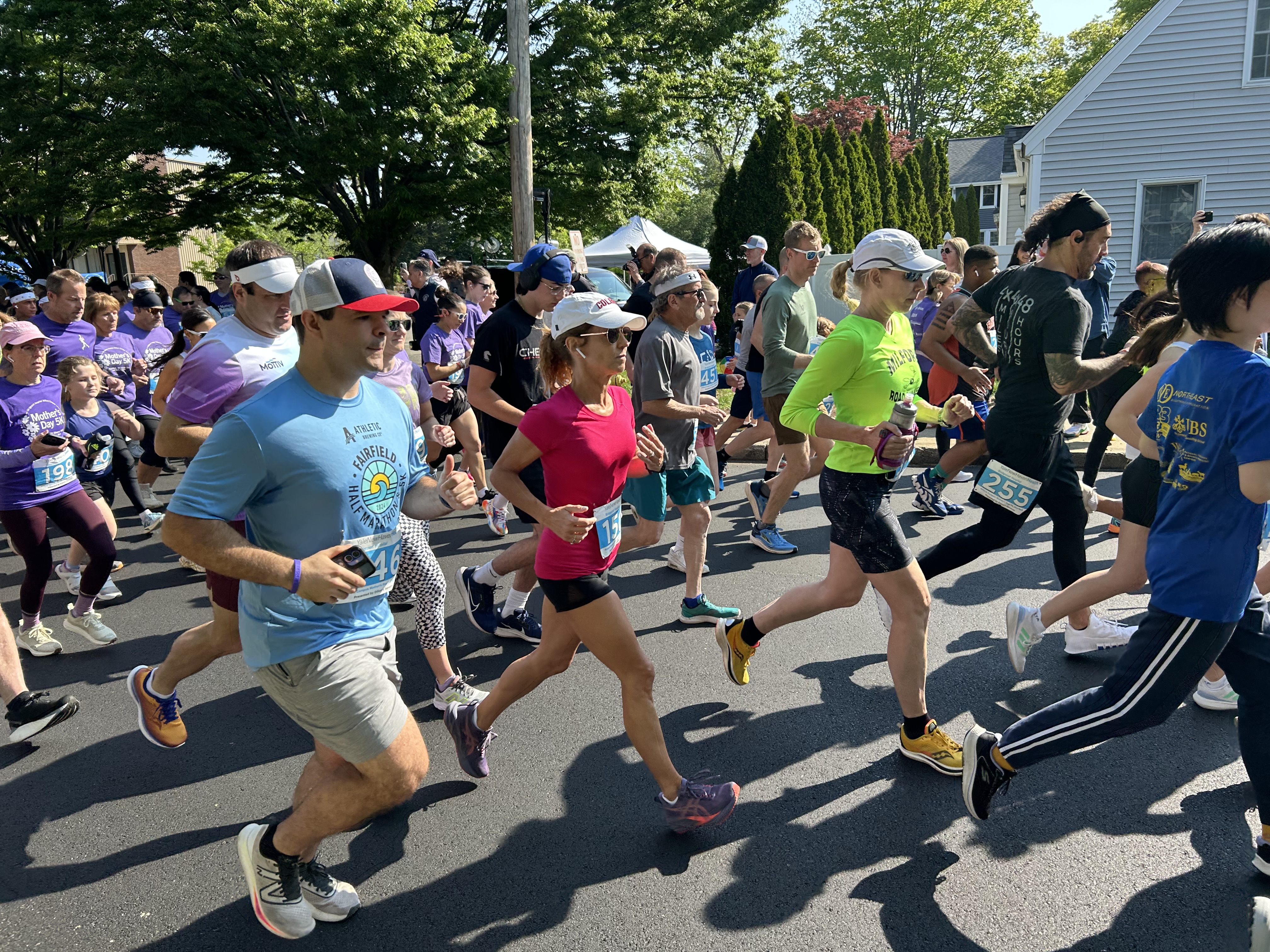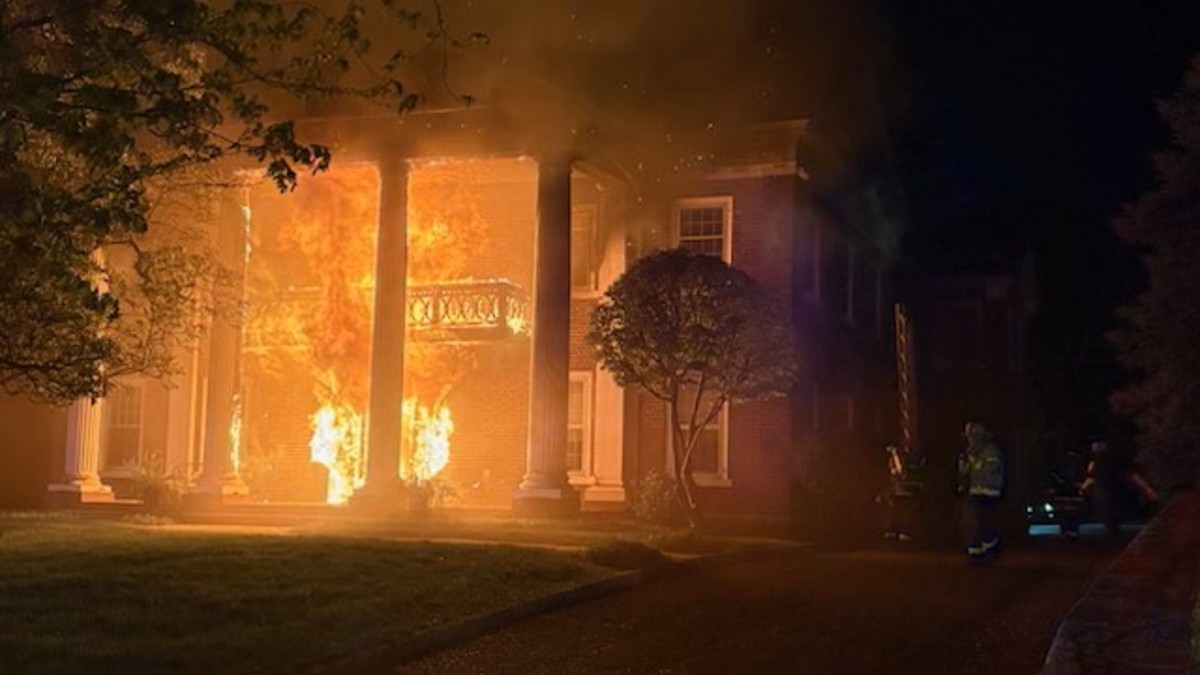
Just halfway through the year, we are on pace for a record number of fatal, wrong-way driving crashes.
Just halfway through the year, we are on pace for a record number of fatal, wrong-way driving crashes.
It’s an issue NBC Connecticut Investigates has drilled down on for five years now, and answers for state safety experts remain elusive.
Stream Connecticut News for free, 24/7, wherever you are.
Too upset to go on camera, a Putnam woman spoke to us about the horror she experienced - a rare interview with someone who actually survived an encounter with a wrong-way driver.
“I thought my life was over…they didn't hit their brakes, they didn't beep, nothing. They were just coming at me head-on," she said.
Get top local Connecticut stories delivered to you every morning with the News Headlines newsletter.
The stats aren’t pretty - seven fatal wrong-way crashes in 2020, eight last year, and, already, eight through June, a potential record year.
“We're kind of topping the charts in terms of the number of crashes that we've had,” said Eric Jackson, executive director of the Connecticut Transportation Safety Research Center at UConn.
It’s not like Connecticut didn’t know of potential solutions.
Local
In neighboring Rhode Island, a $7.5 million project launched in May 2015 set up 24 sophisticated, high tech wrong-way warning systems at 24 trouble spots that reduced wrong-way crash deaths at those locations to zero.
And the state is installing wrong-way warning systems at eight more locations over the next three years.
Bob Rocchio, chief engineer of infrastructure with the Rhode Island Department of Transportation explained, “The flashing lights will get the motorist’s attention and he will turn around and correct course.”
Connecticut went with a different approach in 2017, spending $6.3 million to outfit roughly 700 exit ramps, with larger, taller and more reflective signs.
In 2020, it set up a $100,000 pilot site in Danbury off Interstate 84 with a warning system similar to Rhode Island’s without as many high tech tools, and it has produced promising, initial results. For example, about a half dozen wrong-way drivers turned around since last October.
“We do have data that shows that those lights have been activated five times. So whether they stopped, turned around, whether they got off right away or pulled over and called for help. We do have data that shows that the lights were activated, and there was no crashes in that general area," Josh Morgan with the CT Department of Transportation said.
Connecticut will add 15 wrong-way warning systems across the state, soon.
Bids will be accepted this summer, with completion scheduled in January 2024 - almost a decade after Rhode Island debuted its lifesaving technology.
In spite of that, Morgan insisted when comes to preventing wrong-way crash deaths, “We do take it seriously.”
Unlike Rhode Island, Connecticut has a slightly different set of challenges: more square mileage, and, more impaired drivers…at least on a percentage-wise basis.
“When we started looking at what percentage of our fatalities are due to an impaired driver, Connecticut’s always in the upper 30s to 40% of our fatalities are impaired driving-related, I think the last year that the stats have been released on in 2020, Montana was at 46% and Connecticut was 40%. We were the top two states in the country in terms of impaired driving," Jackson said.
At the same time, crash data experts like Jackson are researching other ways to alert wrong-way drivers, including rumble strips that will make noise if people drive the wrong way over them, plus other innovations.
“We're also looking at some new lane marking and line striping, in terms of when you drive the correct way along that line striping, it looks like a normal stock bar and a lighter, you know, the white line striping that you typically see. But if you're going the wrong direction, the light shine that shines back to you from your headlights actually glows red,” Jackson said.
All these things help, but Jackson pointed out even if you have all the technology in the world, if people keep thinking it’s okay to drive impaired, the issue of fatal, wrong-way crashes will persist in Connecticut.



